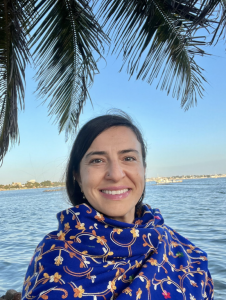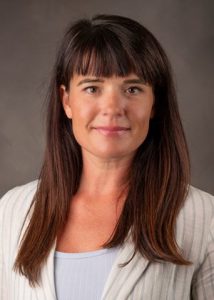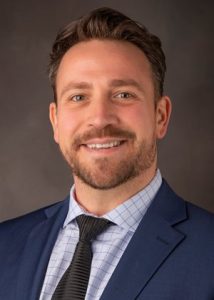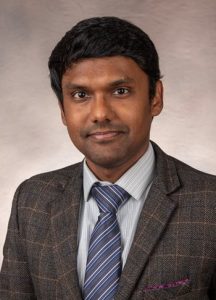19th Annual Teaching & Learning Conference at Elon University
Elon University welcomes university and college educators to the 19th Annual Teaching & Learning Conference on Wednesday, June 7th, 2023. This free, fully-virtual conference is sponsored jointly by Elon’s Center for the Advancement of Teaching and Learning (CATL) and Teaching and Learning Technologies (TLT). Proposal submissions are now open.
Conference Theme: Critical (re)Engagement: Transformative Teaching and Learning for a ‘New Normal’
In an era of endemic COVID, higher education finds itself at a precipice of potential, where we, as educators, can redefine the roles of instructor and learner, rediscover the values that guide our pedagogies and curriculum, and reimagine learning environments. This work requires space, time, and a thoughtful consideration of the collective trauma we have experienced over the last three years. What does our ‘new normal’ look like and how do we ensure that we acknowledge and address the significant inequalities that have been exacerbated over the last three years? This year’s Teaching and Learning Conference envisions exploring, discussing, deconstructing, and rebuilding what it means for us and learners to critically (re)engage in learning.
Proposals may wish to consider the following subthemes:
- What does critical praxis in our new normal look like for students, faculty, and institutions? And how do we support, recognize, and articulate this work in tangible and meaningful ways?
- How can higher education and our own teaching acknowledge and appreciate the importance of health and wellbeing, particularly during periods of liminality and change?
- What are ways that students, faculty, and institutions can reengage with teaching and learning, while centering and explicitly valuing the whole person? What does this look like in our course design, assessment choices, and instructional practices?
- How can space, place, and community help us define, subvert, and/or empower ways in which students experience learning?
- How do we work to (re)engage students while also respecting our own wellbeing? How can institutions support the work of faculty and staff in rethinking and redefining meaningful teaching and learning?
We invite proposals for three session types:
- Interactive Workshop: 70-minute evidence-based workshop
- Innovative Pedagogical Strategy: 30-minute presentations highlighting a teaching strategy and its impact
- Speed Teaching: 5-minute presentation followed by Q&A in a group of three presenters
Proposal submissions are now open. The submission deadline for this year’s conference has been extended to Tuesday, April 11th at 11:59pm EST, and presenter slots are limited. For questions, please contact tlc@elon.edu.

About our Keynote Speaker
Mays Imad received her undergraduate training from the University of Michigan–Dearborn where she studied philosophy. She received her doctoral degree in Cellular & Clinical Neurobiology from Wayne State University School of Medicine in Detroit, Michigan. She then completed a National Institute of Health-Funded postdoctoral fellowship at the University of Arizona in the Department of Neuroscience. She joined the department of life & physical sciences at Pima Community College in Tucson, Arizona as an adjunct faculty member in 2009 and later as a full-time faculty member in 2013. During her tenure at Pima, she taught Physiology, Pathophysiology, Genetics, Biotechnology, and Biomedical ethics. She also founded Pima’s Teaching and Learning Center (TLC). Mays is currently teaching in the biology department at Connecticut College and conducting equity pedagogy research.
About our Keynote Session
Harnessing the Resilience Within: The Science of Biological and Behavioral Resilience through Plasticity, Sociality, and Meaning
In this session, we will examine the current state of higher education and the increase in self-reported burnout, overwhelm, and disengagement. What is happening with our students and colleagues? How can we help ourselves and each other heal, re-engage with learning, grow, and thrive?
By the end of this session, participants will:
- Define polyvagal theory and its application in the context of teaching, learning, and higher education.
- Examine the scientific basis of emotional regulation and resilience.
- Consider practical examples of polyvagal-informed teaching and learning practices.
- Define the relationship between culturally-responsive teaching and successful student engagement and learning.
- Articulate the intimate relationship between equity, radical hospitality and trauma-informed education.
Elon Faculty Plenary
Join Elon faculty, Dr. Jessica Navarro (Assistant Professor, Human Service Studies), Dr. Mustafa Akben (Assistant Professor, Management), and Dr. Pratheep Paranthaman (Assistant Professor, Computer Science) as they highlight unique in which they have used technology to re-engage our learners here at Elon.

Dr. Jessica Navarro is social worker and Assistant Professor in the department of Human Service Studies at Elon University. Jessica’s research and teaching are grounded in Bronfenbrenner’s bioecological theory and social constructivism. Her strengths-based research explores the intersection of digital technology and family life, and she works to carry over this proactive and forward-thinking approach to the integration of technology and teaching.

Dr. Mustafa Akben currently holds the position of Assistant Professor in the Department of Management and Entrepreneurship at the Love School of Business. Research interests include proactivity, creativity, applied machine learning, and artificial intelligence. In recent years, he has directed his focus toward exploring the complex interplay between artificial intelligence applications and human cognition, particularly in the context of creativity.

Dr. Pratheep Paranthaman is an Assistant Professor of Computer Science and the coordinator of the Game Design minor at Elon University. Dr. Paranthaman is currently overseeing the Game Design Minor Program in the computer science department. Dr. Paranthaman’s research interests include brain-computer interface, mixed reality, virtual reality, games user research, human-computation games, and artificial intelligence.